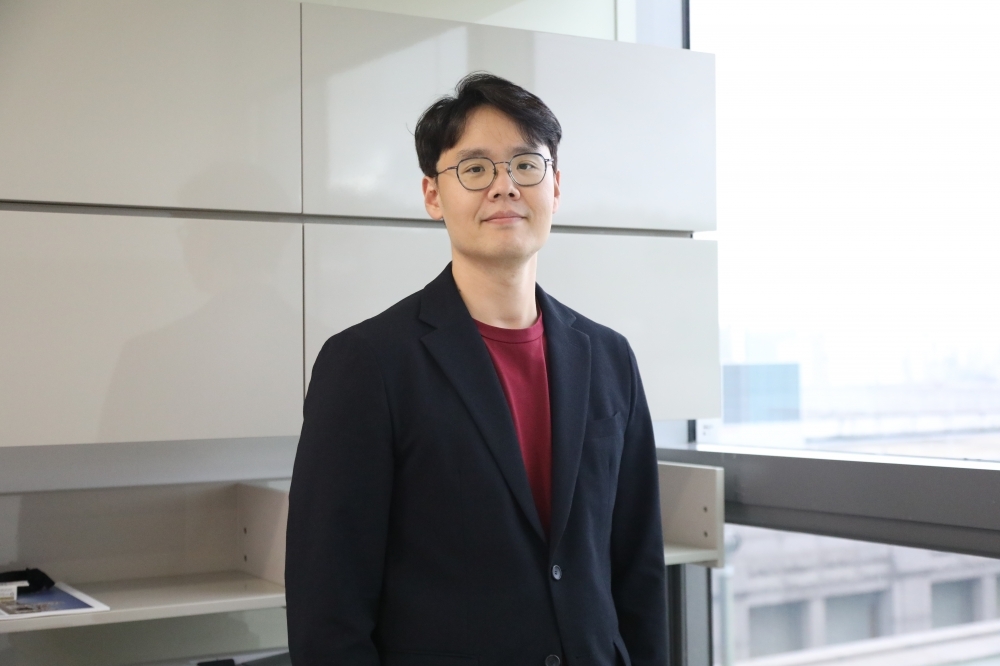News
KUBS News
[Interview with Newly Appointed Faculty for Fall 2025] Professor Dae hoon Noh
2025.10.13 Views 1219 국제실
[Interview with Newly Appointed Faculty for Fall 2025] Professor Dae hoon Noh — Decoding Innovative Business Models Through Game Theory

In September 2025, Korea University Business School appointed five new faculty members, each bringing expertise in diverse areas of research: Professor Dae hoon Noh (LSOM), Professor Juyoung Lee (Business Administration), Professor Seunghoo Chung (Business Administration), Professor Jae Young Cho (Strategy), and Professor Angela Aerry Choi (Information Systems).
To mark the occasion, KUBS News sat down with the newly appointed professors to introduce their research interests and educational philosophies to our readers.
Q1. Please introduce yourself.
Hello, my name is Dae hoon Noh, and I’m an Assistant Professor in the LSOM (Logistics, Service & Operations Management) area at Korea University Business School. Prior to joining KUBS in the Fall 2025 semester, I was an Assistant Professor at the University of San Diego (USD) in the United States. My research focuses on the game-theoretic analysis of innovative business models, particularly those based on platform businesses. I study how firms make decisions simultaneously and how those decisions impact society as a whole.
Q2. What led you to join Korea University Business School, and how do you feel about it?
I have always considered returning to Korea, and I’m deeply honored to join Korea University. I’m particularly impressed by the outstanding research capabilities of the faculty at KUBS and look forward to meaningful collaborations. It’s also deeply fulfilling to teach KUBS students. I will do my utmost to support them as they grow into future leaders of society after graduation.
Q3. What is the research area or topic you are currently focusing on?
As mentioned, my research focuses on the game-theoretic analysis of innovative business models. To illustrate this further, one of my studies examines the competition between global ride-hailing services like Uber and traditional taxi operators—exploring when each model has a competitive advantage and what the broader societal implications of such competition are. In addition to this, I conduct game-theoretic analyses of innovative business models across various industries.
Q4. What is your philosophy when teaching or guiding students?
I aim to help students grasp the essence of the material rather than relying on rote memorization. No matter what content is covered over the course of a semester, knowledge gained through memorization alone tends to fade quickly.
However, if students can understand the lecture material as a coherent and structured narrative, then even if they forget some of the details over time, they will be able to recover that knowledge much more quickly when they revisit it. I strive to design my lectures with that kind of lasting understanding in mind.
Q5. Beyond academic knowledge, what do you think students must learn during their college years?
I believe communication skills are essential. It’s important to be able to communicate your ideas clearly and in an organized manner, tailored to the audience. Even if you excel academically or analytically, your capabilities may still be undervalued if your delivery is weak. I hope students get plenty of practice articulating what they’ve learned to others effectively.
Q6. As a new faculty member at the Business School, what are your goals or visions for the future?
I hope to see the Business School recognized as a world-class institution. The President, Dean, and many dedicated faculty members are already working tirelessly toward this goal, and I hope to contribute in my capacity by producing high-quality research.
Q7. Lastly, could you offer some words of advice and encouragement to Korea University students heading out into the world?
University life is a time filled with both joy and idealism, as well as uncertainty and anxiety about the future. The path most commonly taken may appear to be the only right one, and straying from it can feel unsettling — but in reality, there are many different paths forward.
Don’t be afraid to be different. Use your time in college to explore a variety of experiences and work hard to discover the path that truly suits you — for the sake of the person you’ll be 10 or 20 years from now. I encourage you to seek support from your professors and alumni along the way. Make the most of Korea University’s exceptional community — it will serve as a great source of strength throughout your life.


